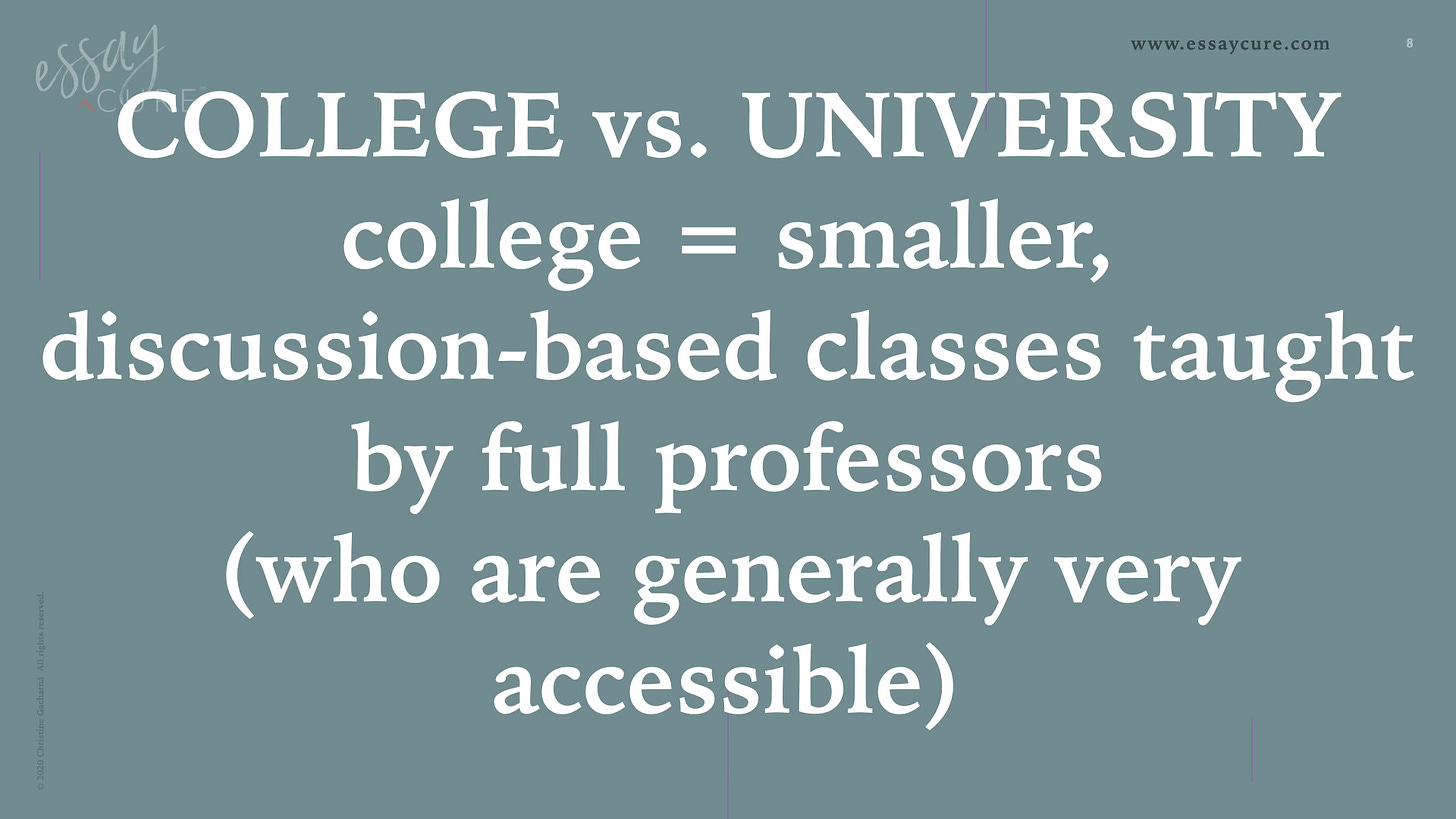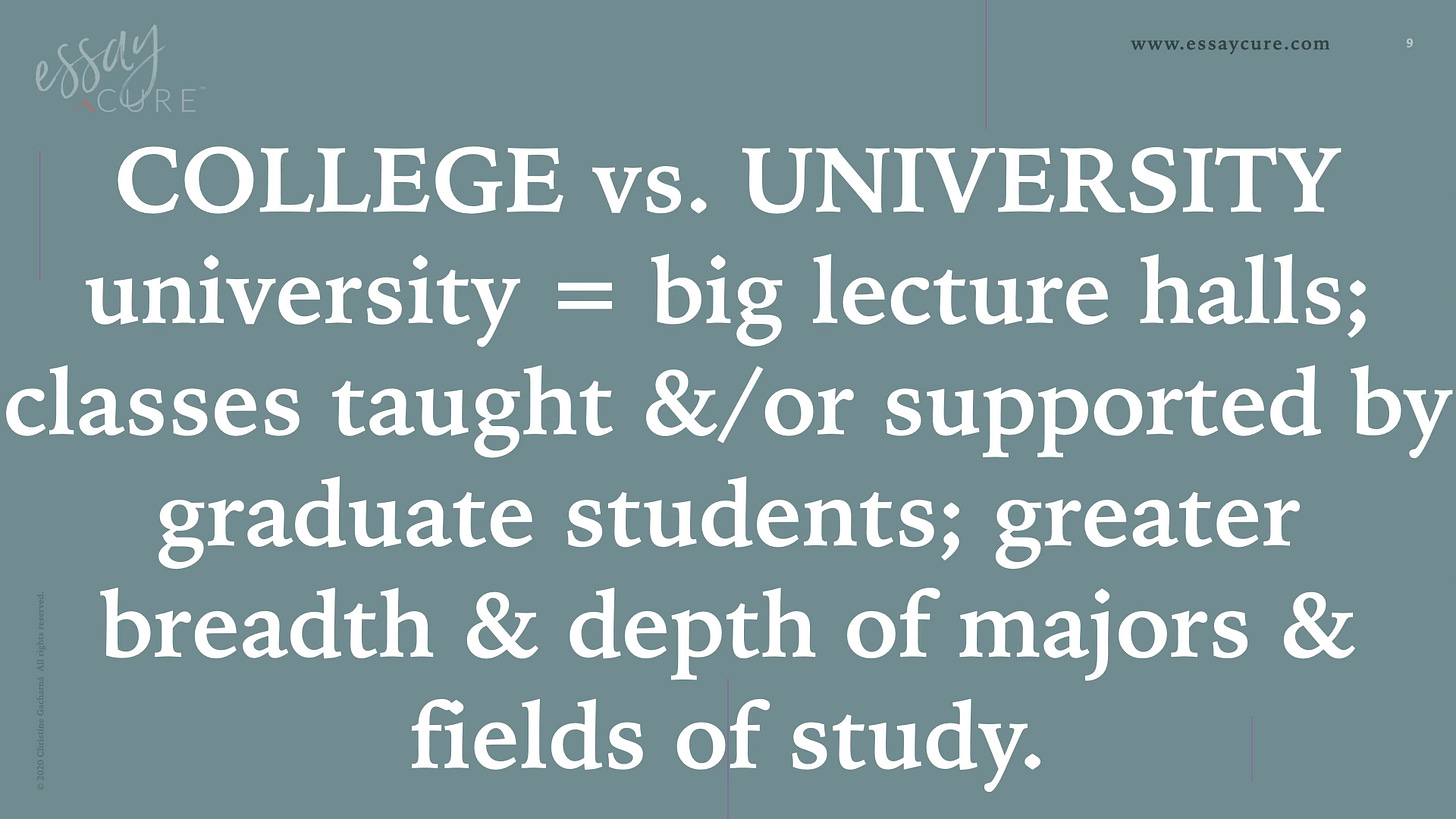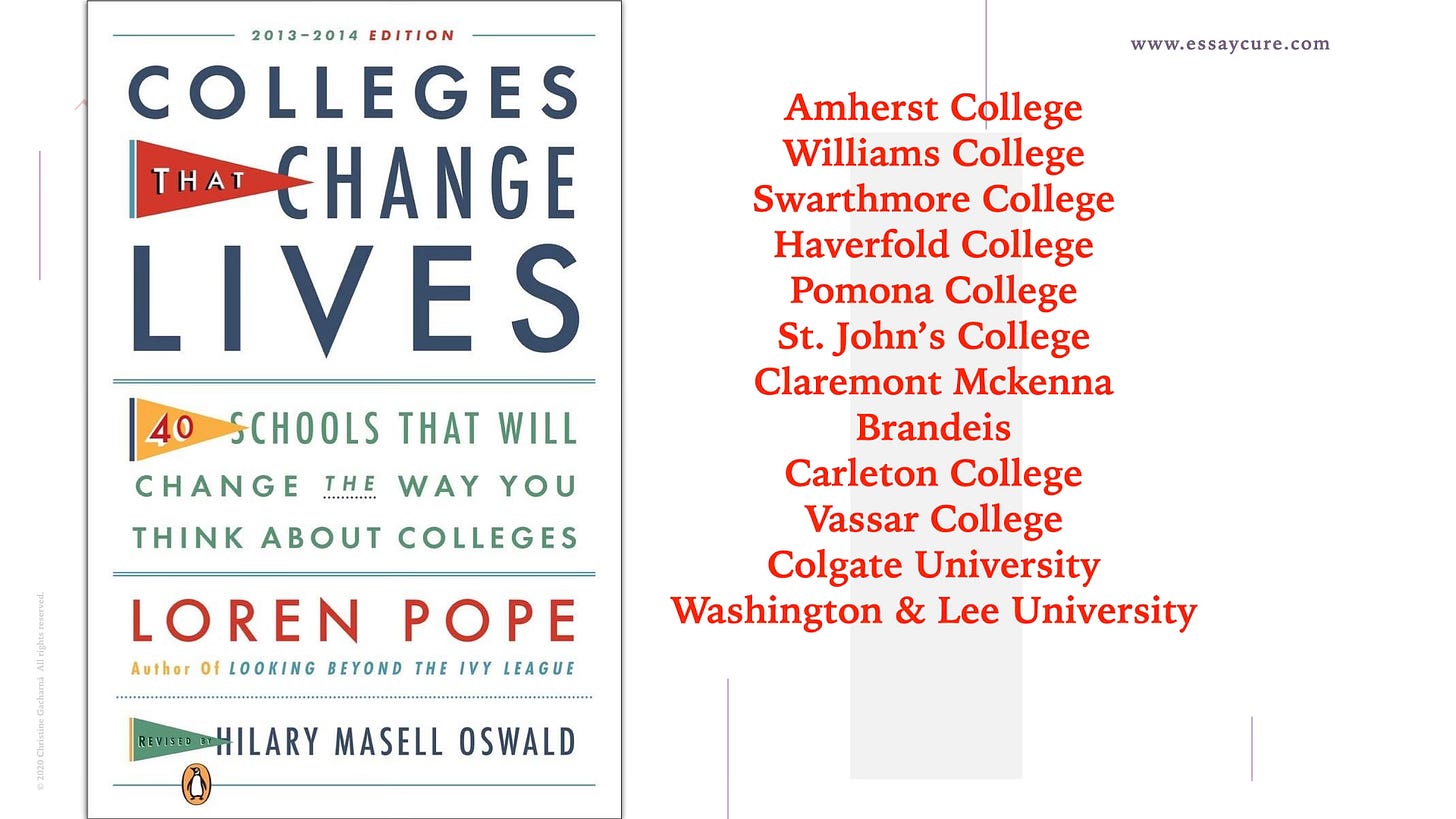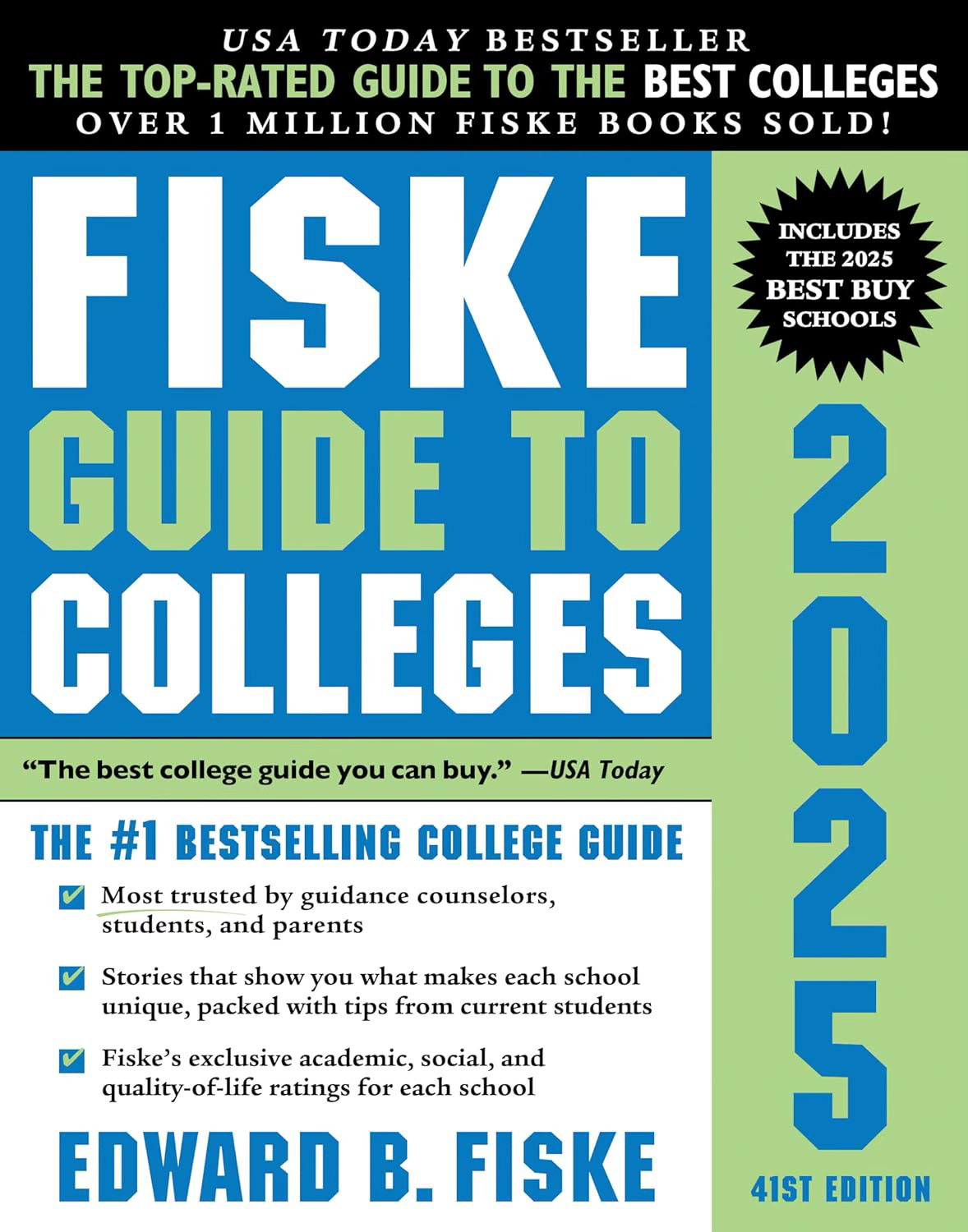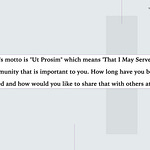“Falling in love with a sweatshirt before receiving an acceptance letter puts the cart before the horse.”
The difference between a college and a university is simple: colleges focus on undergraduates, while universities offer graduate and PhD programs. As students begin to research and tour schools, they should pay particular attention to campus size.
Universities have smaller “colleges” on their campuses, which can be confusing for students. For example, a large university may have a “college of engineering” or a “college of business” that focuses on undergraduate education.
There are more than 6,000+ colleges and universities in the United States.
Some of them are schools that maybe students haven’t heard of. If there are schools on this list that students and/or parents haven’t heard of, it’s worth looking into them.
This is a really great book. It talks about 40 schools, but there are more than 40 schools in this country that can change lives — and some of them are in your backyard. These are the kinds of schools that highly selective graduate schools like to choose students from.
Let's talk about Rensselaer. Maybe some of you haven't heard of this school, but if you have a student who's academically interested in STEM programs, like engineering maybe, Rensselaer has a premier merit scholarship worth $160,000.
Now, the thing is, a student’s high school needs to nominate the student for this scholarship and the nominations are due by May 1st, so the college application process starts your junior year.
Students have got to start thinking about this stuff during their junior year because by the time they’re a senior, these deadlines have either passed or they're right up on us and students don't even know it yet.
RIT, Rochester Institute of Technology, offers similar scholarships that students need to be nominated for in the spring of their junior year.
Rose-Hulman is another.
High school counselors are happy to take care of this for students, but high school counselors need support from students to identify these interests and deadlines, and students can use support from parents, families, and IECs to help their high school counselor help them. More on that in the next video.
I’m not a fan of college rankings.
There’s soooooooo much that goes into finding a good-fit school for a student! I recommend that parents and students stay away from rankings, outdated information, stereotypes, and expectations and instead, focus on being curious about learning what’s out there and what could potentially be a good fit.



